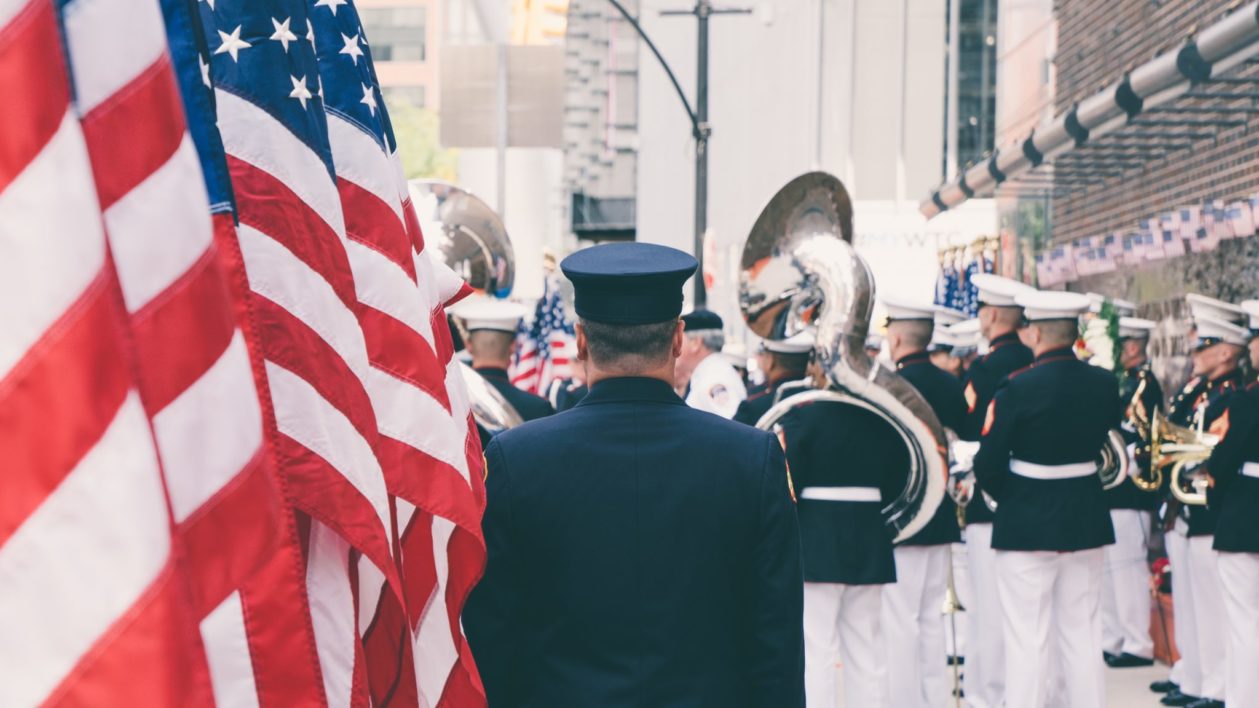“Old soldiers never die,” goes the old U.S. Army ballad, “they just fade away.” Sometimes, that’s true. It can suit the needs of a democracy to value its armed forces when they’re serving in a theater of war but then to push them from its mind during more peaceful times. That does them a disservice, and many veterans, with good cause, feel underappreciated. However, the men and women who have served in the military have a huge amount to offer in civilian life.
America has traditionally had an ambivalent relationship with the service of veterans. On the one hand, civilian control over the military is in America’s DNA, born of tensions which ignited the War of Independence. As we saw with General James Mattis and are seeing again with General Lloyd Austin, the National Security Act 1947 prohibits a serviceman of less than seven years retired status from serving as secretary of defense: Mattis was granted a congressional waiver, and it is hoped by the Biden administration that Austin will be, too. But the stipulation exists for a reason—to preserve civilian control over the armed forces.

Despite that, the United States has proved itself more than comfortable with looking to the military for leadership. Ulysses S. Grant and Dwight D. Eisenhower both moved from senior command to the presidency (Grant admittedly without obvious success), and many other military names have been touted as potential commanders-in-chief: Douglas MacArthur, Curtis LeMay, Wesley Clark, David Petraeus.
Equally, former generals have often served in very high civilian positions: George C. Marshall, Alexander Haig and Colin Powell have all been secretaries of state, while Marshall also ran the Pentagon in the early 1950s; other four-stars who have had post-military careers include Maxwell Taylor, James Watkins, Mike Hayden and Eric Shinseki. President Donald Trump began his administration by surrounding himself with figures of a martial tinge—Michael Flynn, James Mattis, John Kelly—but it is a relationship which has soured, to no one’s credit.
How do we explain this attraction to soldiers, sailors and airmen? Is it purely a matter of image, presidents bolstering their air of authority by co-opting the military, or is there something about generals and admirals that makes them good hires in civilian life? Here I’ll look at some of the aspects of military life and experience which are benefits for the private sector.

Generals Are Taught to Lead
That sounds banal, but professional soldiers are educated in the theory and practice of leadership; West Point, Annapolis and the other service academies teach a curriculum that includes the study of leadership from a historical, ethical and moral point of view, and junior officers who graduate are soon given a very firm practical grounding, placed in charge of a unit of soldiers for whose very lives they are responsible. By the time military men reach 30 or 40 years of service, they have the principles of leadership not only drilled into them but also refined by experience.
Lifelong Learning Is Part of Military Culture
We might like to picture our heroes as GI Joe (or Jane), leaping out of helicopters and storming bunkers, and physical bravery is an essential part of soldiering; but senior military personnel know that time spent in the schoolroom is not wasted. The U.S. Army maintains its Command and General Staff College at Fort Leavenworth, offering professional development and degree-level awards to promising officers, while some take it further. David Petraeus earned an MPA and a PhD at Yale as young major, and Stanley McChrystal (now a prolific author in leadership) took an MSc at Salve Regina in Rhode Island. This culture has come to the private sector—look at the demand for MBA, MPA and MPP courses—but it is hardwired into the military.
Flexibility Is One of the Highest Virtues
The business world now loves to talk about the ability to adapt to changing circumstances, whether it be “agility” or “dynamism” or “resilience.” Successful military organizations have long known that this is a key skill, ever since battles began to be fought beyond visual range. Decision-making must be devolved to the lowest possible level and trust placed in the hands of junior commanders on the ground. Combat soldiers will often need to make split-second decisions in which they cannot ask for advice but must rely on instincts tempered by learning. To fire, or not to fire? To advance, or to retreat? The level at which “you are on your own now” can be a very junior one, and the decisions can have enormous consequences.
So, a senior military officer can bring plug-and-play leadership, learning and decisiveness. Those are huge strengths to a business organization, whether a lean start-up or a venerable corporation. You might choose to access these skills from a non-executive director once a month, or from a full-time manager day-by-day. They are not only present in starred officers; a good captain or major will have learned a lot in their service, which they can then offer to you.
Military institutions are not flawless. Like any big organizations, they can develop and incubate failings and disadvantages (to which I may return in the future). But their personnel are highly trained, and, don’t forget, have been trained at your expense. Why not get an extra return on your investment the next time you’re hiring?







